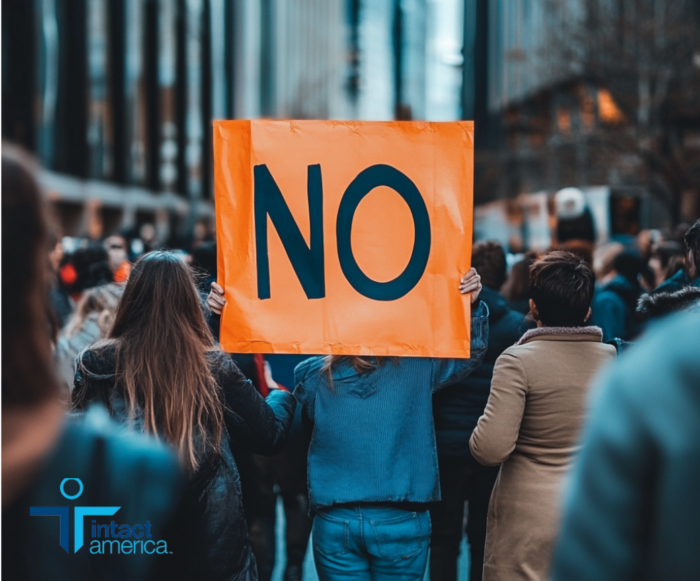
Circumcision. For some, it’s just a word—something that might elicit a shrug or a casual nod. But for others, it’s a deep scar, both literal and emotional—a mark left by a decision they never got to make.
This ancient practice, dating back to Ancient Egypt (2300 B.C.), involves the surgical removal of the foreskin and is still performed without a second thought by many parents today. They say “yes” to surgery and the trauma that their child will have to live with for the rest of their life, often without ever considering the gravity of what they’re agreeing to.
We live in the 21st century, a time that supposedly champions democracy and personal choice.
We fiercely debate the right to bodily autonomy in matters like abortion, gender expression, and sexual freedom—so why does the conversation about circumcision remain stuck in the past, wrapped in cultural and religious dogma?
Why are we still ignoring the child’s right to decide what happens to their body?
Where exactly do we draw the line between parental rights and a person’s fundamental right to their own skin?
Parental Pressure and the Push to Conform to Circumcision
The core issue at the heart of circumcision is a disturbing one: parental rights versus bodily autonomy.
Babies can’t speak up for themselves, so the decision falls to the parents or caregivers. But let’s be honest—this raises some serious ethical questions.
First, parents are stripping away their child’s right to their own body—literally. And second, this choice is permanent.
The child grows up with the consequences of a circumcision decision made without their consent, potentially fostering resentment and anger toward those who made it.
Parents often regret this irreversible choice, many admitting they were coerced by cultural, social, or religious expectations – as well as the medical establishment (hint: there is a profit motive).
“It wasn’t until our perfect baby boy was born on March 19th 2020 that I would I be asked no fewer than four times in a single day if we had “decided on circumcision.” Nobody offered any explanation further of the procedure, or any information on leaving my son whole. Although I had just learned about all of this 6 weeks prior and I was still unsure, my answer was repeatedly no, only to hear a mumbling reply about cleanliness, parental preference, and UTI prevention. The last time they came in looking to take our son, instead of asking they barged in and exclaimed “Okay and it looks like he’s ready for his circumcision!” I banged back with a “I SAID NO THANK YOU!” and the nurse turned around and walked out of the room. If I hadn’t been on guard, they would have tricked me into it.”
– Sarah Zeimet, Voices
Even those who doubted the necessity of circumcision and questioned its ethics still gave in to pressure, later feeling guilty or remorseful.
Take it from a regretful father: “I bullied and convinced my wife to cut our oldest child without any factual reasons.
As soon as I witnessed my oldest get cut, I immediately knew I had made a bad decision.” — Circumcision Survivors Speak Out — Your Whole Baby.
A Child’s Body, a Child’s Choice
Let’s cut to the chase: a child has a right to their own body.
Bodily autonomy isn’t something you earn with age—it’s a basic human right from the moment you’re born.
Circumcision doesn’t respect this right; it violently disregards it.
Even if you think a newborn can’t grasp the concept of bodily autonomy, the physical and psychological consequences are very real.
Pain, bleeding, infections, and penile injury are risks even with anesthesia, and many adult circumcised men report reduced sexual sensitivity and satisfaction, leading to insecurity and low self-esteem.
The Empty Promises of Circumcision’s “Benefits”
Supporters of circumcision claim a list of supposed medical benefits—reduced risks of UTIs, STIs, and penile cancer.
But when you dig deeper, these arguments are full of holes.
Studies show that males already have a lower incidence of UTIs compared to females, and effective treatments are readily available if they occur.
Sure, some research suggests a lower risk of certain STIs like HIV, but these findings are often context-dependent and inconsistent, with the greatest benefits observed in high-risk populations.
And penile cancer? It’s so rare that simple hygiene practices and regular check-ups are more than enough to mitigate the risk.
In short, circumcision doesn’t do anything statistically significant to protect against these threats—it just exposes people to new ones, both physical and psychological.
A Future Built on Choice, Not Barbaric Tradition
It’s time to challenge the narrative around circumcision and force the conversation into the 21st century.
By openly discussing the real risks and consequences of this procedure, we empower parents to make better, more informed choices that respect their child’s right to their own body.
No child should have to endure unnecessary surgery or suffer for the sake of outdated traditions.
We must shatter the stigma and dismantle the cultural taboos that keep us from questioning circumcision.
Together, we can create a world where every individual, regardless of age, has the right to decide what happens to their own body.
Conclusion: Enough Is Enough
Circumcision is a violation of a fundamental human right—the right to bodily autonomy.
Parents may be making this decision, but should they be?
In a world that’s increasingly focused on personal freedom and choice, it’s time to ask the hard questions: Is circumcision still justifiable?
Should we keep practicing something that denies a child the right to their own body?
The tide is turning, with some countries reconsidering their stance on circumcision, especially when it’s performed on those too young to consent. Organizations like Intact America are leading the charge, amplifying the voices of those who’ve been affected and driving change through strategic advocacy.
This isn’t just about changing minds—it’s about reclaiming the right to choose for those who have been denied it.
Join the fight today because what’s yours should always remain yours.








Israel J Pattison
November 4, 2024 7:08 pmI have put QR codes that link to this article that I wear in public. It is exactly the right place to send people who are oblivious to the issue and need a quick summary of the facts.